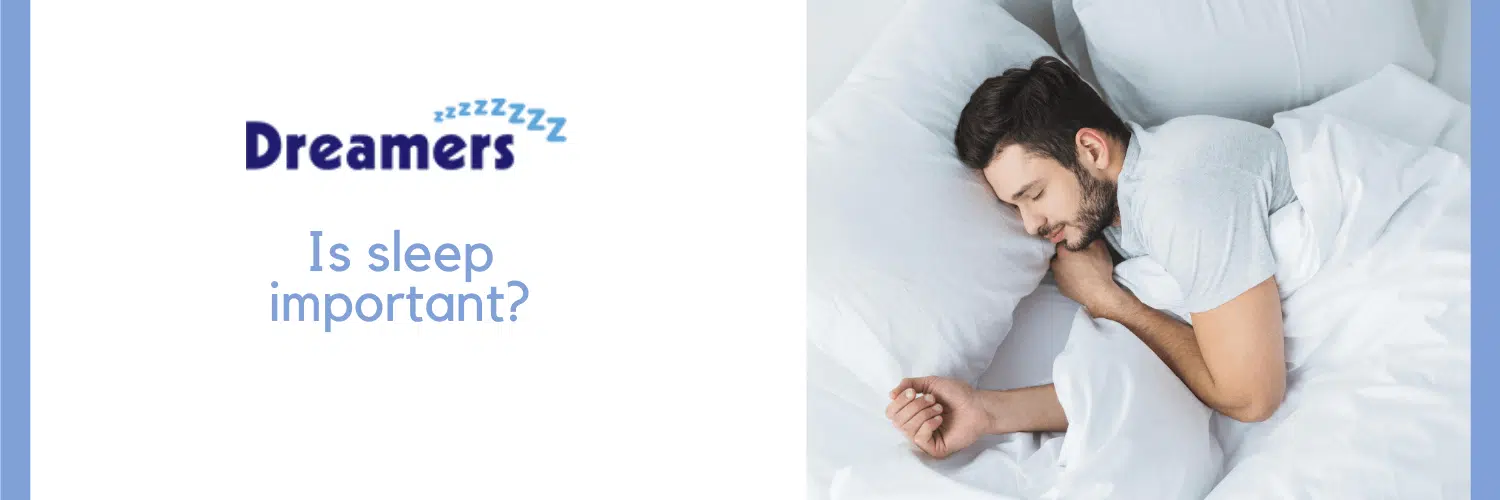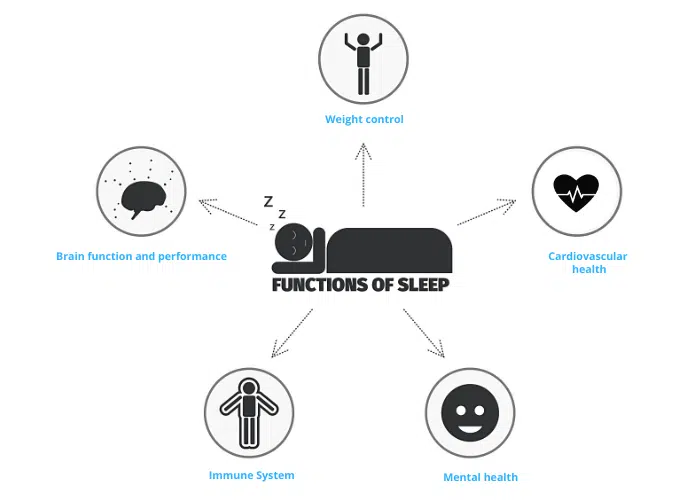Is sleep important?
Did you know, the UK national average sleep duration has steadily declined since the 1960s? It’s a sleep-loss epidemic. One that has (no doubt) been caused by our modern lifestyle – including longer working hours, excessive screen time, caffeine consumption...

Did you know, the UK national average sleep duration has steadily declined since the 1960s?
It’s a sleep-loss epidemic. One that has (no doubt) been caused by our modern lifestyle – including longer working hours, excessive screen time, caffeine consumption and increasing levels of stress.
But we should never underestimate the importance of sleep. Just like eating, drinking and breathing, it’s essential to our mental health and physical wellbeing. Nobody can survive without it. Scientists still aren’t 100% sure why. However, they are starting to build a clearer picture of the effects of sleep deprivation (both in the short- and long-term) and the benefits of good quality sleep.
Here we take a closer look at their findings.
What are the effects of sleep deprivation?
Everyone has experienced sleep deprivation at some point in their life. Perhaps you struggled to sleep because of hot weather or anxiety? Or maybe you had a late night out with friends?
Whatever the cause, you’re likely to have suffered typical ‘lack of sleep’ symptoms, including:
- – drowsiness and fatigue
- – mood changes (feeling grumpy and irritable)
- – trouble thinking and concentrating
- – forgetfulness
- – poor balance and coordination
After just one sleepless night, these symptoms are short-lived and can usually be cured by going to bed a little earlier. But if poor sleep becomes a regular occurrence, over time, it can put you at risk of serious medical conditions (e.g. heart disease, obesity) and even shorten your life expectancy.
6 reasons why sleep is important
Aside from having more energy, good sleep has been shown to have many benefits:
1. Brain function
Sleep is important for various aspects of brain function, including cognition, concentration, productivity, performance and memory. And if you don’t get enough sleep, it can impair these functions as much as alcohol. According to a recent study, spending just 17 hours awake was found to decrease overall brain performance as much as two glasses of wine.
2. Mental health
Having one late night can make us feel tetchy and bad-tempered. So, it’s hardly surprising that long-term sleep deprivation can lead to mood disorders – such as depression and anxiety. Sleep is vital to our overall mental wellbeing and getting ample rest can help to improve your mood and outlook.
3. Immune system
One of the main purposes of sleep is to allow the body to repair and recover. It can even help to boost your immune system and fight off infection. Therefore, if you’re suffering from insomnia, your immune response may be impaired and you’re much more likely to catch bugs (such as a cold or flu).
4. Weight control
Surprisingly, sleep has an important role to play in weight control. Studies have shown that people who sleep less tend to gain more weight – and have a higher risk of becoming obese.
This is for several reasons. Firstly, sleep-deprived people have a reduced level of leptin in their blood (i.e. the hormone that makes you feel full). As such, they’re more likely to snack throughout the day and will consume more calories. Lack of sleep can also have a detrimental effect on your energy levels, reducing your motivation to head to the gym and do your daily exercise.
5. Resistance to cardiovascular disease
Sleep deprivation has been associated with increased heart rate, increased blood pressure and higher levels of chemicals linked to inflammation. This all puts extra strain on your heart. Therefore, by getting enough rest, you can significantly reduce your risk of heart disease and stroke.
6. Athletic performance
For athletes, sleep is just as important as getting enough nutrients in their diet and training. Not only does it allow the body to heal overnight, it also improves energy levels, coordination, speed and mental functioning. And as a result, can significantly enhance athletic performance and intensity.
How much sleep do we need?
This can vary greatly from person-to-person and is very much an individual thing. However, as a general rule of thumb – the older we get, the less sleep we need to function properly.
The average adult requires approximately 7-8 hours a night. Babies and children typically need more than this and will sleep for around 13-18 hours per day. By contrast, older adults (aged 60+) tend to require just 6-7 hours – but will often take a few naps throughout the day to make up for it.
Not getting enough?
Sleep is an incredibly important – yet often neglected – component of our health and wellbeing. And if you’re struggling to clock up enough hours each night, it may be time to make a few changes.
Our team of ‘sleep experts’ have excellent knowledge in this area and have created numerous blogs, with lots of helpful tips on how to improve the quantity (and quality!) of your sleep – including ‘Five things to help you sleep better at night’, ‘Get a good night’s sleep with a Mammoth Mattress’, ‘How to get to sleep if you’re feeling anxious’ and many more. So, be sure to check these out.
If nothing seems to make a difference, your mattress could be the issue.
Luckily, here at Dreamers Bed Centre, we have a huge range of styles and sizes to choose from and we’re always happy to help. If you’d like further information on the importance of sleep – or need a little advice on the best mattress for you – please feel free to get in touch at any time. Either give us a call on 01942 275 464 or send an email to info@dreamersbedcentre.co.uk and we’ll get back to you.




